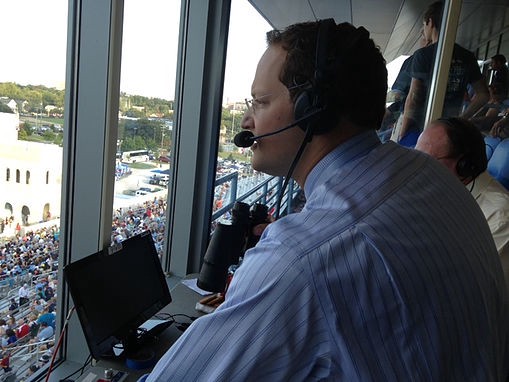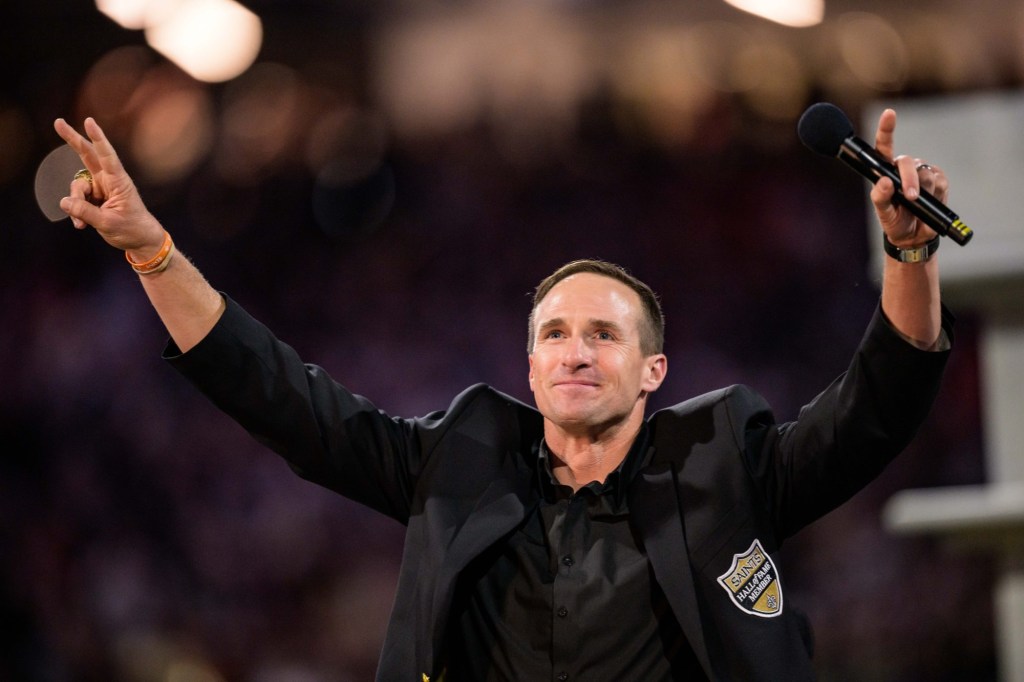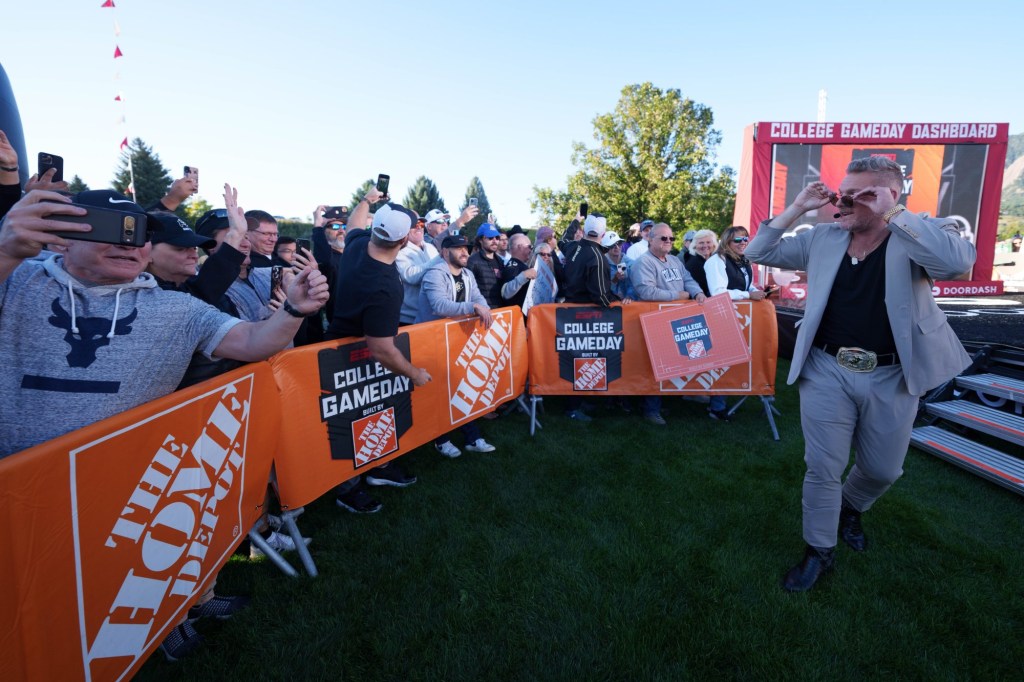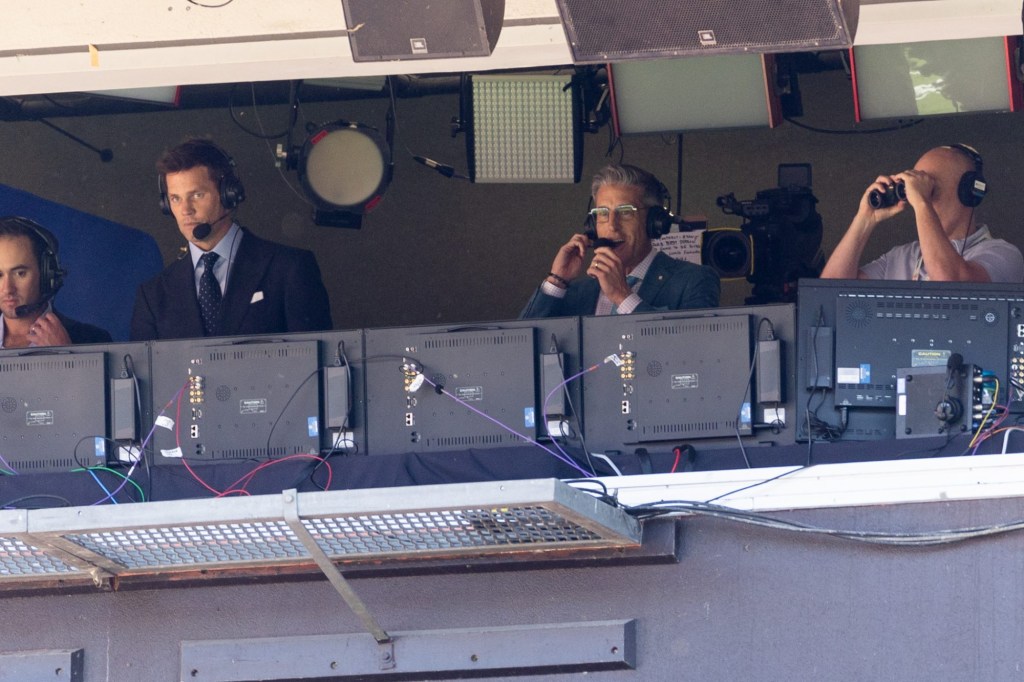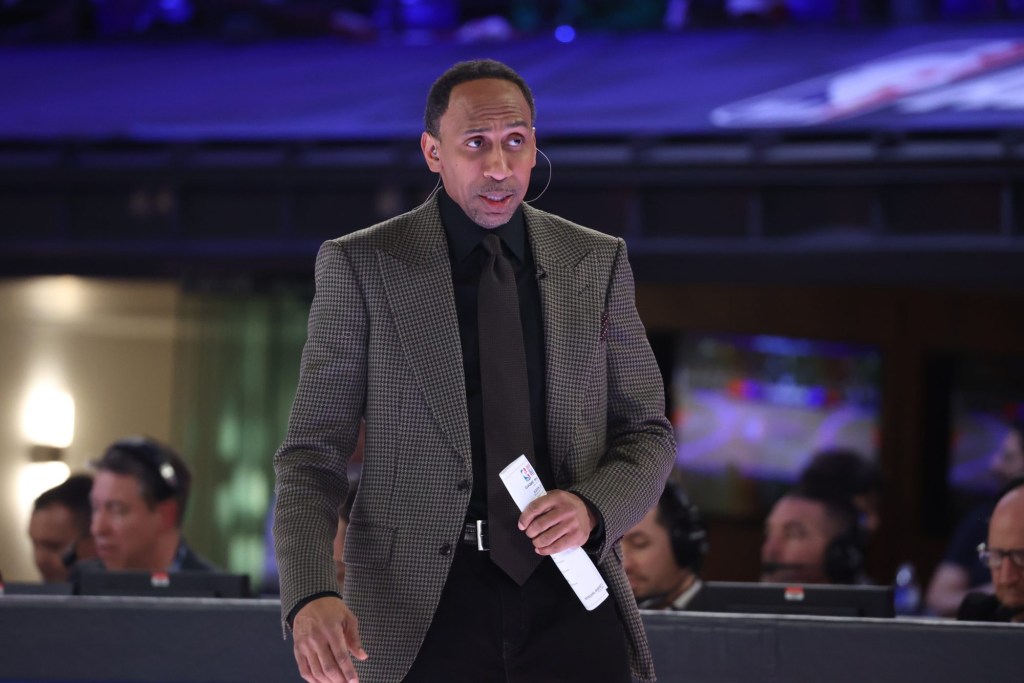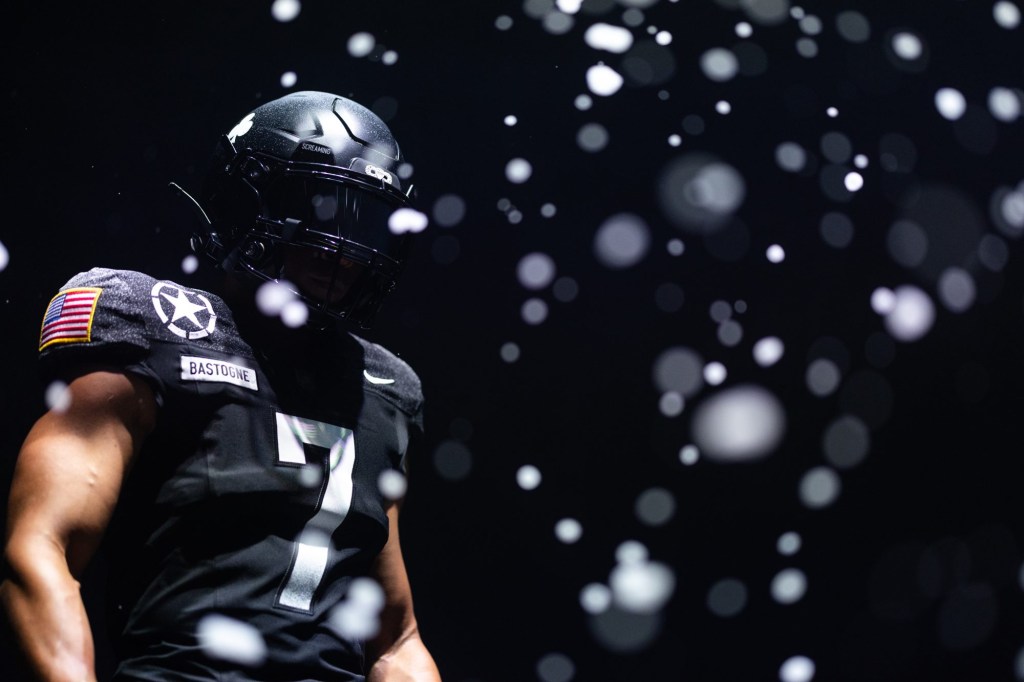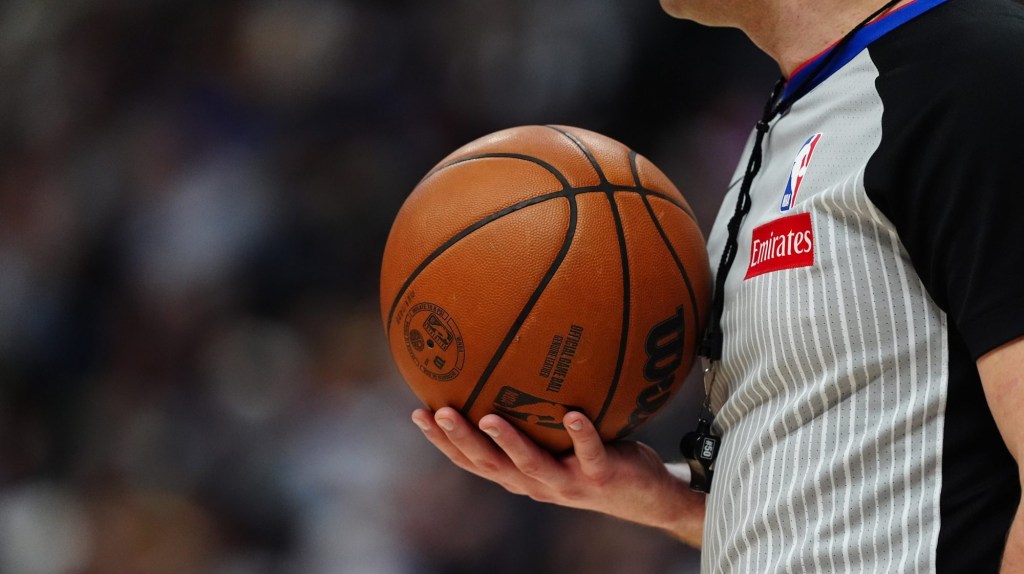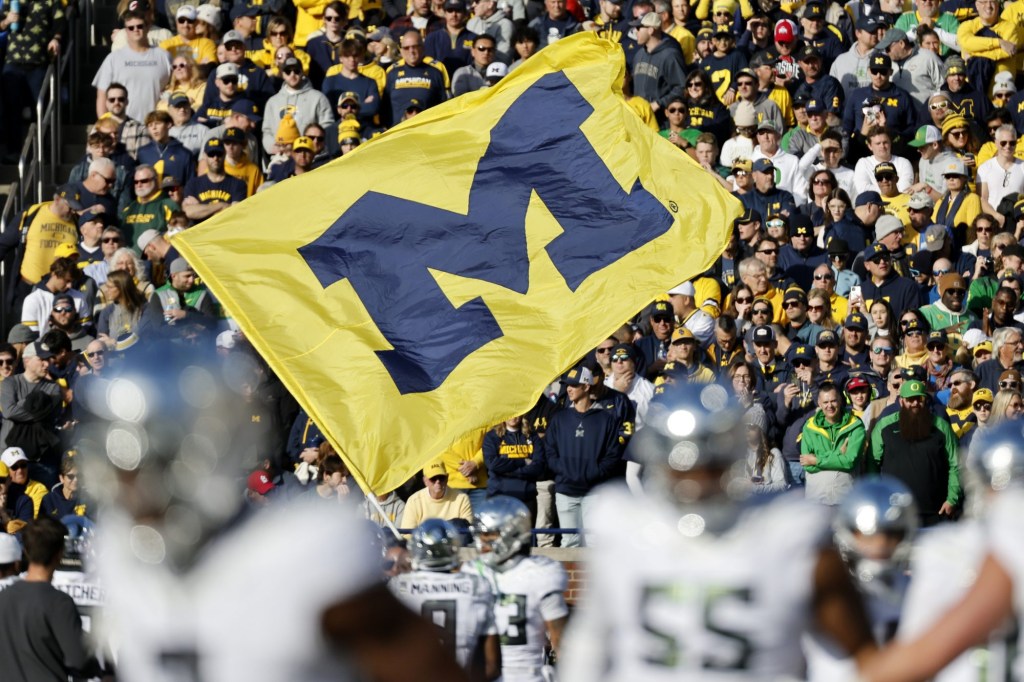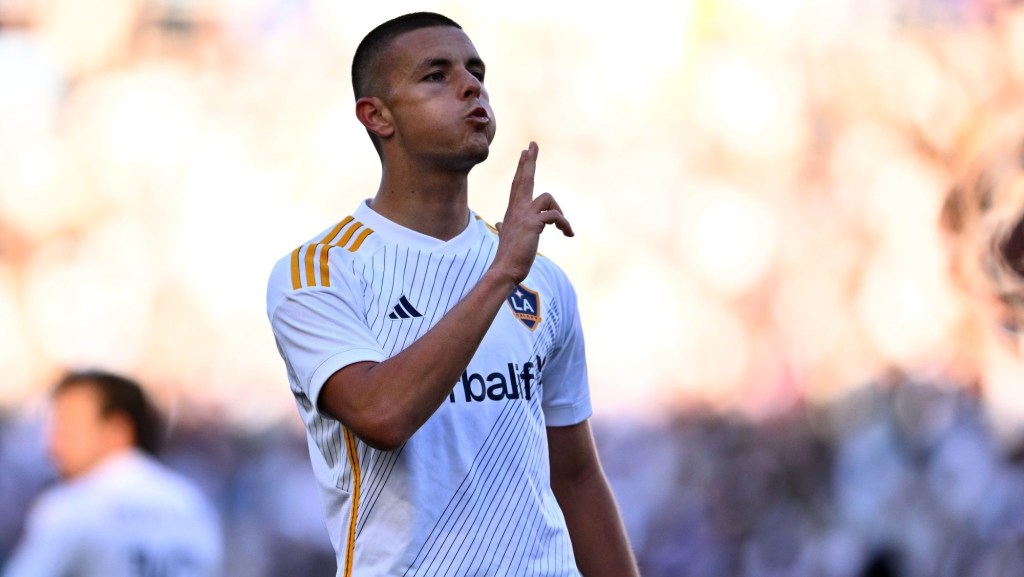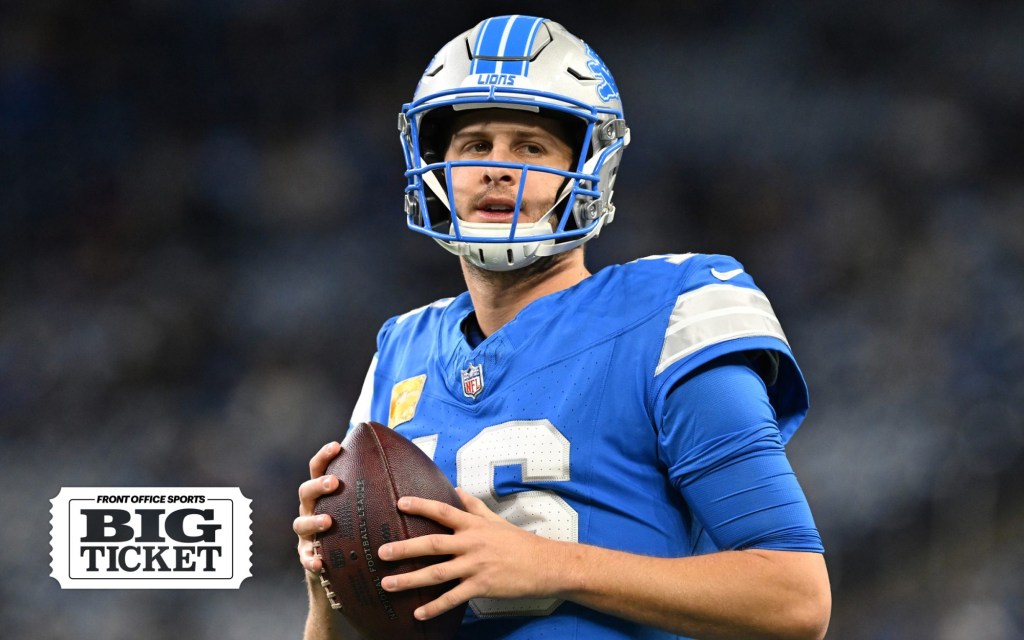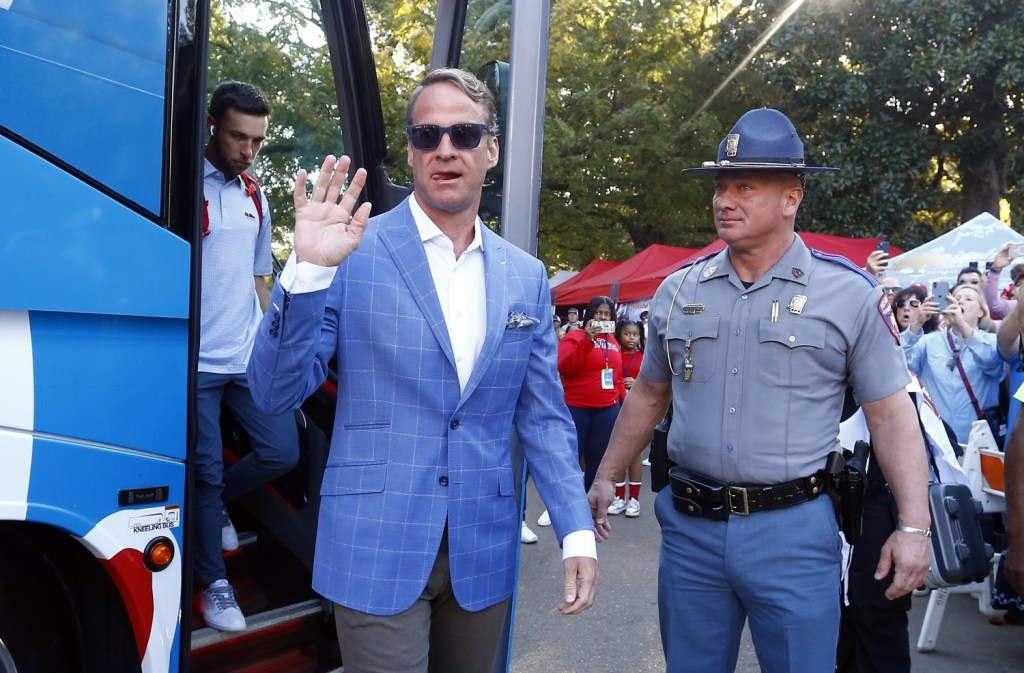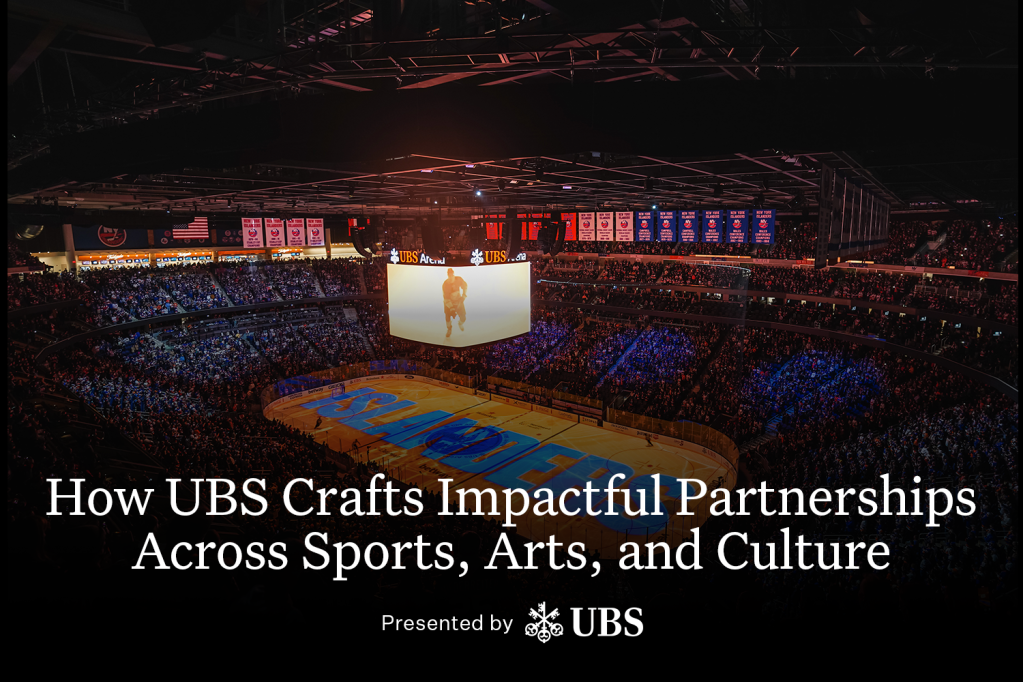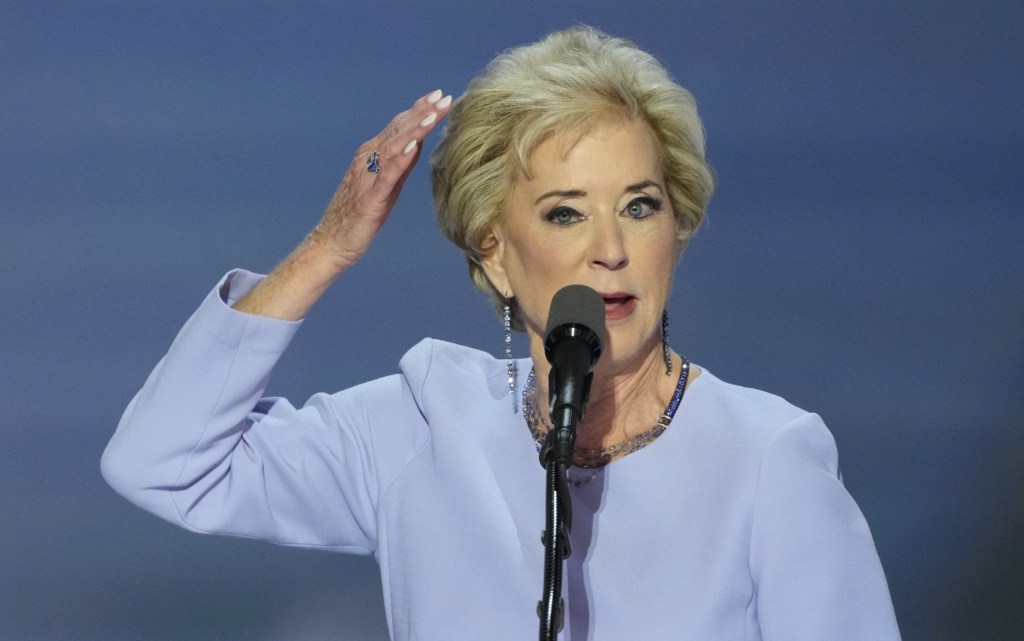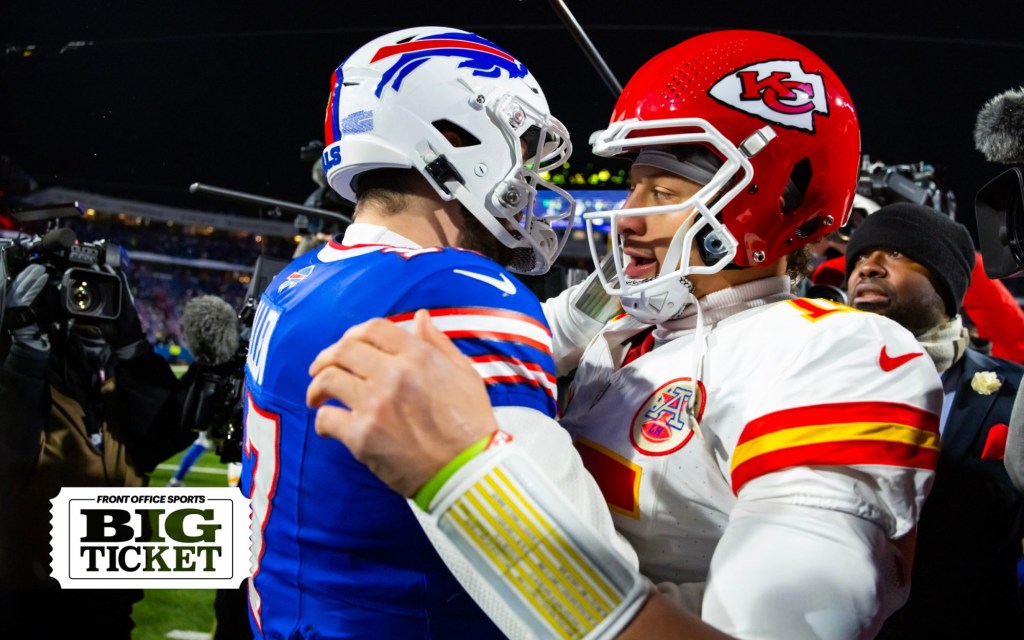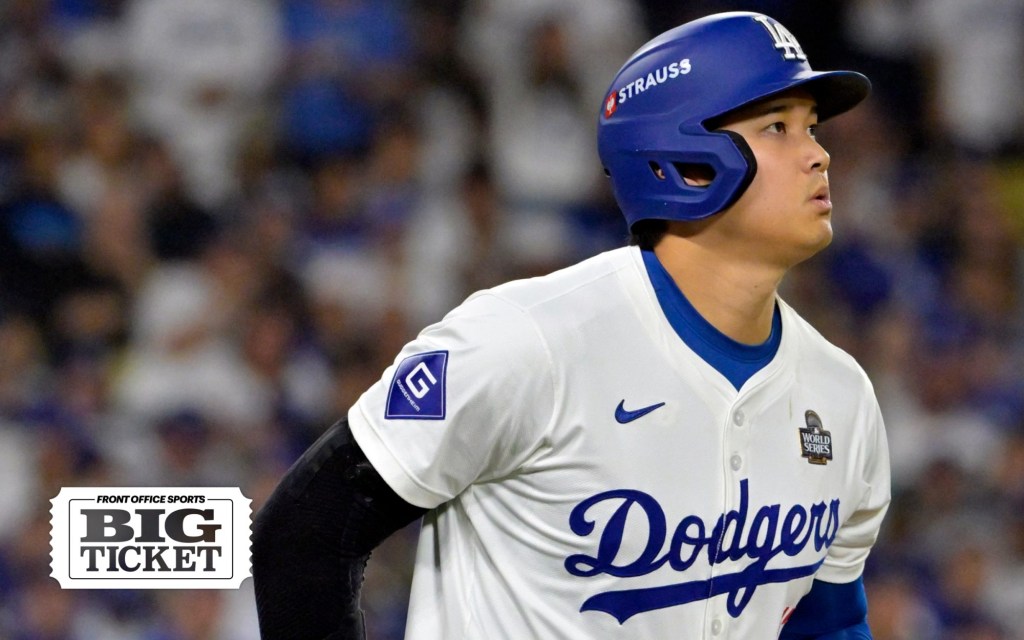By: Travis Gorsch, @tgorsch3

Front Office Sports is proud to have sat down with Darren Goldwater, Freelance Play-by-Play Broadcaster. Darren was gracious enough to have offered up his time and insight into the world of broadcasting, the importance of being prepared for every opportunity, getting your hands on anything and everything, and adapting a never say no attitude. Darren is very versatile with experience in high school and college athletics as well as having experience on the radio and in television. He gives us a behind the scenes look at what it takes to be successful in each and the differences between the two.
You graduated in 2002 from Penn State with a degree in journalism. How did you separate yourself from others trying to break in to the sports broadcasting industry while you were a young professional looking to get his foot in the door?
I’ve seen some comments in the stories that you’ve done. Being in the right place at the right time but being prepared for it when you’re there. As a sophomore I started working at a radio station in State College. I wasn’t tailgating with my friends on game days. I was in the locker room cutting up the sound and preparing for the postgame show. My advisor at Penn State Bob Martin said to me why don’t you go to the MLB Winter meetings. I had never done play by play, so I asked my boss to give me one game. It was a high school basketball game and I used that resume tape at the winter meetings and ended up getting two baseball job offers. I ended up taking the Charleston job.
As much as I loved baseball I missed everything else. I got in to the local ESPN Radio station and started doing anything I could get my hands on. I was a salesman, play-by-play for high school sports, and #2 radio guy for the Citadel. I stayed busy and got my hands on everything I could get my hands on. The Citadel guy before me took a job at VCU so that job kind of fell to me. After three years, the Southern Conference launched a TV package and I was fortunate they chose me to be the lead play by play announcer. You just try to meet as many people along the way. That’s what I did during my time with the Citadel. Fortunately I have a relationship with the league office.
You were very busy while at State College taking on as many internships as you could find. What advice do you have for students pursuing a sports broadcasting career about getting involved while in school? Which do you find to be more valuable in the industry, education or experience?
It’s very different today. Even back then my story is strange. Most broadcasters realized they wanted to do it at a very early age. That wasn’t me. I didn’t have a whole lot of experience in college. I’m real fortunate. These days there are so many opportunities out there. Be it a minor league team around your college. A lot of them will use multiple people. If I was sitting down with a 17 or 18 year old kid wanting to do this going in to college. I would tell them to do whatever you can possibly do whether it’s behind the scenes or whatever. Just find a way to get close to that #1 seat so that when there’s an opportunity you’re ready to jump in to it.
Experience. There is no question that it’s experience. I’ve never once been asked what my GPA was. I graduated, I got my degree. Don’t push education to the side but experience is what matters in this field. Whether you can get it as a paid student working for someone or experience in an internship. Get a feel for both sides, radio and TV. When I was at Penn State I interned with all three TV stations up there. I learned editing, shooting, a lot about being poised when conducting the interview, and sitting behind the desk on the TV side. All of this complimented what I had learned in school. We were taught all of the X’s and O’s but you have to be able to put it to work in a practical setting. You need experience and with experience comes comfort. When you get more comfortable you get more relaxed.
You began your career as a Sports Marketing Director and afternoon co-host/producer for ESPN Radio in Charleston. After that you took a position as Director of Broadcasting for the Citadel Sports Network. What did these two experiences teach you about your career moving forward?
I think we touched on it a little bit. In order to move up in this business you have to be ready for the opportunity when it comes. If you’re not adept at multiple things you can’t be ready for every opportunity that comes your way. The thing I took away was how much I had to do and how much I had to get my hands on in order to understand the business. Production, business, hosting, play-by-play, etc.
There were times I did stuff for free just to get some experience knowing later on I might get paid for it. I was getting experience for the next time. Never say no! Never ever say no! Treat people well along the way. There are a lot of people in this business. You see the same people over and over again. You need to be a good person. Be someone that people like to work with. Everyone’s out there working as hard as they can. If you’re not someone that people want to work with then you’re not going to get very far.
In your current position you announce 60–70 televised games per year. How are you able to balance your work life with your family/personal life?
It’s tough. The goal is to get more games and continue to grow. I’ve been fortunate to get to this point. Like anyone I’m trying to get more games. Fortunately with ASN [American Sports Network] it looks like I will be able to do that. I’m lucky I have a great wife who is very understanding. She knew sports was a passion of mine. She understood that it was a part of it. My wife works full time running her own marketing company. She has a more ‘normal’ job. I can do my work when my time allows.
Working when my daughter is taking a nap, or at daycare, or after she goes to sleep. I can pick and choose when I do my prep. You have to manage your time very well. When I’m at home I have to maximize the opportunities. When I’m on the road that’s the tough part. It was tough before we had Grayson. There isn’t a time on the road that I don’t FaceTime Heather and Grayson. I don’t know how they did it in the old days before video chats. It takes a lot of understanding and patience on both parties.
You find a time to do the work. People who know me and have seen my charts know that I prep a lot and maybe even over prep. If I use fifty percent on what’s on my chart for a football game that was probably a boring game. I have to know who everyone is. I put a lot of pressure on myself to prepare that way. During the season there are a lot of late nights and early mornings.
What were some of the important skills that helped you to perform well coming out of college? What qualities does a person need to have to be successful in your field?
You have to have a never say no attitude. Be a person that others want to work with. It takes more than just a love of sports to work in sports. It’s great. It’s something many people would kill to do. We all love it. It’s what we dream to stay around but you really need to love it. If you don’t the travel will wear on you. Being away from family will wear on you. If you lose your passion for the game then the rest of the job and the majority of the job will be hard. The fun part is broadcasting the game. If it’s not what drives you then you’re in the wrong business.
Play-by-play broadcasting requires a lot of preparation. It is my understanding that football is one of the longest to prepare for. Instead of just one game, you call two games a week. Can you highlight how you prepare for a football game? How does it differ from other sports?
It’s a lot harder than other sports but it’s doable. For basketball games I can do about three-four a week. Football there aren’t many people doing two games a week. I won’t be doing it this year because of a much larger college football schedule with even more travel, but in the past, when my schedule allowed, that’s what I did. I had been doing high school games in town for the last five years. It’s almost harder than college because there isn’t as much background information and coverage.
You have to hound the coaches who are overworked already and the last thing they want to do is get me a roster, depth chart, and talk to me for a half hour. Over time I have built up relationships with coaches around town. They now understand that I was simply trying to make their teams look good. The conversation with the coach becomes the most important part of my prep. What he’s trying to accomplish not only on the field but as a father figure for these kids. Preparing for a college game takes at least 4 days of solid work.
I lay out my chart with the numbers, names, and basic bio information (height/weight/hometown). I go back in and do research on every player where they’re from, who they are, and why they’re important. The last thing I do is I’ll put the stats in. I’m not a stats heavy broadcaster. It’s more than just cramming numbers down their throat. They aren’t the most important thing for me. For college I watch as much game film as I can. Instead of looking for #55 I can recognize what he looks like and where he usually is on the film. The conference call during the week is important too. Whether it’s talking to the coaches or one of the players. You’re not spilling secrets you’re just trying to get a better understanding.
With experience on both TV and on the radio, how different are the two? How do you approach preparing for those differences and what makes each medium difficult in its own respect?
I love TV because you are working with so many people to put on the broadcast. There are a lot of creative minds putting together a broadcast. That’s the thing about TV that drew me in that direction. It’s going to be better than an individual doing it. As a play-by-play guy I’m one of the guys that drives the show. We are all on the same page on how we want to react. As for radio until you get to a high enough level you do everything yourself. I had all the equipment, I had to set it up, break it down, I was the producer, and handled commercials. It was great to have all of it on your shoulders.
I like working with a team though because more minds is better than one. That’s one difference. The major difference is when you call a game on the radio every one of your listeners is blind. They can’t see a thing. You are their eyes. They have no idea what’s happening. They can only picture it by the description you give them. There’s a lot more talking in radio. You have to locate the ball on the field, which team and player has it, who else is around the ball that is part of the play, what’s the score.
That element is fun in radio. It leads to me saying a lot more than I would on TV. TV is more of a conversation between the play-by-play and analyst. It’s not my job to paint the picture because you’re watching what I’m watching. If I can find something that is important I find ways to add color to the picture they’re already seeing.
What has been your most memorable broadcasting moment thus far?
I’ve been really fortunate to be in a good spot. I’m the luckiest Citadel play-by-play guy that’s ever lived. In my three years I was there for Andre Roberts who is with the Redskins now, I saw the second ever 20 win basketball season, second best baseball season and the team won regional game. Once I got in the TV side I’ve done every Southern Conference championship event for the last four years except the Men’s basketball final because that’s on ESPN. I’ve had a pretty cool seat for a lot of defining moments. If there’s one that stands out it was an individual performance.
Karl Cochran played for Wofford. Early on in the season they had a game at Chattanooga. They were outplayed, outmanned and everything in the last five minutes of the game he was unconscious. It was incredible. I think it was an 18 point deficit. He hit five-six 3’s down the stretch and they went on to win. I can’t remember ever seeing anything like that. Even their coach said that was one of the most amazing things he’s ever witnessed. It’s the most recent memorable moment it stands out to me today.
What is the biggest mistake you see students and young professionals making when trying to get in to media/announcing?
Two things jump to mind. Too stats heavy. The things that are said the most is numbers. Students and young broadcasters who don’t have as much experience tend to get enamored with numbers. When that happens it’s hard to follow the game because all you’re getting is numbers. From a radio standpoint if all you hear is numbers you don’t know how the defensive is positioned. I don’t know if it’s a cloudy day, what the pitchers doing between pitches, etc. I can’t see the game.
That’s the number one thing that jumps out to me. #2 which takes a long time to learn. They try to copy people that they respect and think are the best. If you try to be Joe Buck or Dan Shulman. You can’t. Dan Shulman is one of the best because he’s Dan Shulman. If you try to copy him you can’t because he’s still better at being Dan Shulman than you. You can take things that you like from certain announcers.
Joe Buck for example. I think he’s fantastic. He’s ability to have fun while keeping the broadcast serious is a gift. The way Dan Shulman can describe action with the right words at the right time with not too many words is a gift. Weave them in to your personality. It’s hard to put that all together. You haven’t figured out your identity on the air because you’re just getting started. You have to be yourself and find a way to take the good parts from good people and incorporate it in your personality.
Three things every student and young professional should remember when he or she is trying to break in to the sports industry?
The three things are patience, persistence, and passion. Patience because yes there are some really good young announcers because they are good and deserving. Adam Amin and Joe Davis are two of them. They’re fantastic, young and deserving but it’s not that easy. Yes you might get that break but you need patience.
They would be the first to tell you that. You need to stay the course. Persistence goes along with that. Getting every opportunity that you can. Networking and not annoying them. Passion. Like I said before if you lose the passion or don’t have it to begin with it doesn’t work like that. You need to love it. Broadcasting isn’t who I am but it’s what I do and it’s a part of who I am. The grind to get to where you want to go, and what it takes to get there and stay there you’ll never make it without passion.
Parting wisdom?
It’s a great industry to be in. It’s not all glitz and glamour but it’s wonderful. Even when I’m doing a game and there might not be a lot of people in the stands. You still have the best seat in the house. It beats the next best job. There’s no other place I’d rather be. I hope to continue to grow and continue to get more games and higher level games.
It’s a constant battle even at this point but it’s one I understood when I got in to it. I hoped I could be a 25 year old broadcaster on the national level. That’s still the way it is today. It takes time. Frustration is part of it but don’t let yourself stay frustrated long.
We would like to thank Darren for his time and insight and we wish him all the best in his future endeavors! You can follow him on Twitter here or connect with him on LinkedIn here! If you are interested in checking out his official website just click here!
